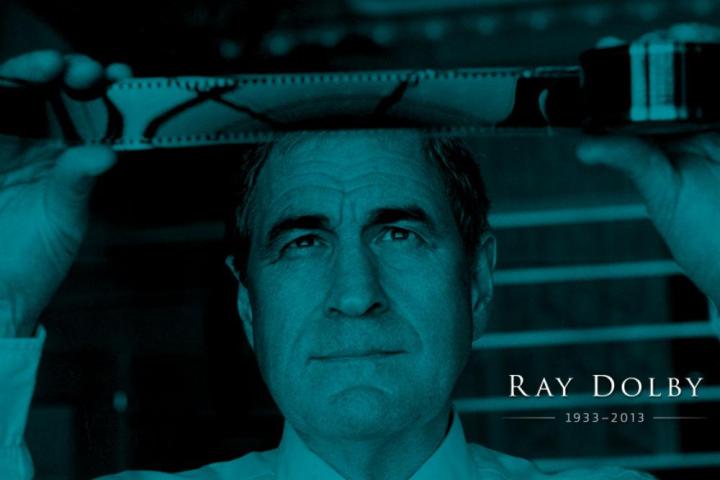
Ray Dolby, the great audio innovator and founder of Dolby Laboratories, passed away last Thursday from complications of Leukemia at his home in San Francisco. He was 80 years old. Dolby left behind a legacy that is etched in the annals of the audio and film industry, changing the face of studio recording, and blazing a path for high fidelity and surround sound in both movie theaters and the home that is still being followed today.
The launching pad for Dr. Dolby’s remarkable career was crafted from the same catalyst as that of most great innovators: a problem. In Dolby’s case, the problem was tape hiss.
Dolby spent his early years working intimately with tape recording prototypes as a consultant with Ampex, while also pursuing his B.S. in electrical engineering from Stanford. After receiving a PhD in physics from Cambridge University in 1961, he worked as a technical advisor to the United Nations in India. He returned to England in 1965, and decided to put his vast knowledge of audio technology to work by founding Dolby Laboratories that same year. By 1966, he had laid the groundwork for success by creating his historic noise reduction system, Dolby NR.
Dolby NR uses sonic principals to compress tape hiss at higher frequencies, which allowed for an unprecedented level of fidelity in tape recording and playback to be achieved. The process spawned several variations, including the Dolby B system for consumer use, and Dolby SR, which transformed the film industry with its vividly clear sound, making an impressive debut in the Kubrick film A Clockwork Orange.
From there, the successes kept piling up. Dolby Laboratories’ noise reduction technology was adopted in nearly every facet of the audio industry, and the later invention of Dolby Stereo laid the groundwork for modern surround sound, helping to transform big budget films into visceral experiences. Dr. Dolby received over 50 U.S. patents in his tenure, and for his efforts was presented with several awards throughout his career, including an Oscar, a Grammy, and the National Medal for Technology and Innovation from President Clinton.
Ray Dolby’s legacy continues today in the digital world, with Dolby Laboratories’ ongoing innovations in the fields of professional and consumer digital sound. We will remember the man for his immeasurable impact on the entertainment industry, changing the idea of what recorded audio could be, and forever altering the world of sound.
Editors' Recommendations
- What is Dolby Atmos Music, and how can you listen to it at home and on the go?
- The ultimate guide to Dolby Atmos: what it is and how to get the best possible sound
- DTS Play-Fi wireless audio adds support for Dolby Atmos, DTS:X
- How to get Dolby Atmos on Netflix
- Platin Audio’s wireless home theater speaker system now handles Dolby Atmos


